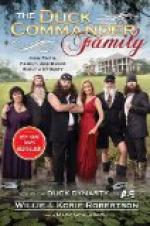Dr. Langton himself, being a man of liberal views and sound piety, would very gladly have welcomed some reforms within the church, which he, in common with all the early Reformers, loved and venerated far more than modern-day Protestants fully understand. They could not bear the thought that their Holy Mother was to be despoiled, and the Body of Christ rent in pieces amongst them. No; their earnest and ardent wish was that this purging of abuses, this much-needed reformation, should come from within, should be carried out by her own priests, headed up, if possible, by the Pope himself. Such was the dream of many and many a devout and earnest man at this time; and John Clarke’s voice always softened with a tender reverence as he spoke of the Holy Catholic Church.
So now his eyes lighted with a quick, responsive fire, as he turned them upon his host.
“That is just what I am ever striving to maintain—that it is not the church which is in fault, but those who use her name to enforce edicts which she knows nothing of. ’Search the scriptures, for in them ye have life,’ spoke our Lord. ’Blessed is he that readeth the words of the prophecy of this book,’ wrote St. John in the latter days. All men know that the Word of God is a lamp to the feet and a light to the path. How shall we walk without that light to guide us?”
“The church gives us the light,” spoke Hugh Fitzjames softly.
Clarke turned upon him with a brilliant smile.
“She does, she does. She provides in her services that we shall be enlightened by that light, that we shall be instructed and fed. We have little or nothing to complain of in that respect. But there are others—hundreds and thousands—who cannot share our privileges, who do not understand the words they hear when they are able to come to public worship. What is to be done for such? Are their needs sufficiently considered? Who feeds those sheep and lambs who have gone astray, or who are not able to approach to the shepherd daily to be fed?”
“Many of such could not read the Scriptures, even were they placed in their hands,” remarked Fitzjames.
“True; and many might read them with blinded eyes, and interpret them in ignorant fashion, and so the truth might become perverted. Those are dangers which the church has seen, and has striven against. I will not say that the danger may not be great. Holy things are sometimes defiled by becoming too common. But has the peril become so great that men are forced to use such methods as those which London is shortly to witness?”
There was a glow in Clarke’s eyes which the gathering gloom could not hide. Magdalen seemed about to speak, but Dalaber was before her.
“They say that the Tyndale translations are full of glaring errors, and errors which feed the heresies of the Lollards, and are directed against the Holy Church.”




